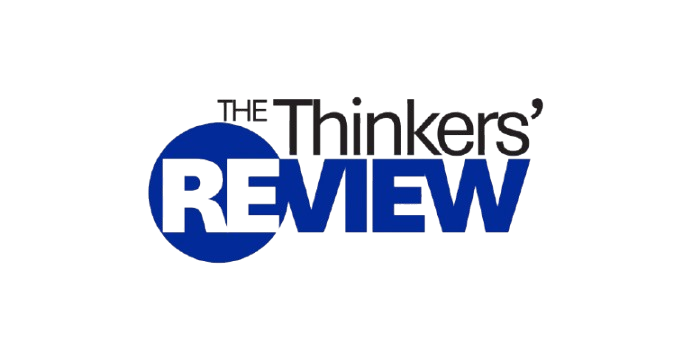Research Publication By Pharm Mercy E. Asuquo
Institutional Affiliation: New York Centre for Advanced Research (NYCAR)
Publication No.: NYCAR-TTR-2025-RP006
Date: June 10, 2025
DOI: 10.5281/zenodo.17392327
Peer Review Status:
This research paper was reviewed and approved under the internal editorial peer review framework of the New York Centre for Advanced Research (NYCAR) and The Thinkers’ Review. The process was handled independently by designated Editorial Board members in accordance with NYCAR’s Research Ethics Policy.
The pharmaceutical sector is a cornerstone of modern healthcare systems, yet its global operation remains fragmented and unequally distributed. As the demand for equitable access to medicines grows alongside the vision for universal health coverage (UHC), there is an urgent need to optimize pharmaceutical systems within broader social health management frameworks. Efficient, equitable, and accountable pharmaceutical management is no longer a national concern alone—it is a global imperative shaped by governance, law, regulation, supply chains, and innovation.
This article explores the evolving landscape of global pharmaceutical systems and their integration into social health strategies. It highlights pressing challenges and policy innovations in ensuring that essential medicines are not only developed but also accessible, affordable, and appropriately used—especially in low- and middle-income countries.
Universal Health Coverage and Medicines as a Social Right
The availability of safe, effective, and affordable medicines is fundamental to achieving UHC. However, in many parts of the world, access remains compromised by systemic inefficiencies and regulatory gaps. Wirtz et al. (2020) argue that essential medicines must be recognized as public goods, not commodities, and that their integration into UHC schemes is a litmus test of a government’s commitment to health equity.
Singh, Doyle, and Campbell (2021) reinforce this position, noting that without a robust pharmaceutical framework embedded in health policy, UHC becomes symbolic rather than actionable. They emphasize that both price regulation and transparent procurement systems are critical to closing the access gap.
The Role of Global Governance and Legal Infrastructure
Pharmaceutical systems do not operate in a vacuum; they are governed by international legal, financial, and ethical frameworks. Gostin et al. (2020) emphasize the concept of “legal determinants of health,” suggesting that binding international agreements and national legal reforms are essential to ensure equitable drug distribution and accountability in global health.
International frameworks, such as those promoted by the World Health Organization (WHO), are central to this effort. The WHO Global Benchmarking Tool, updated in 2023, provides a comprehensive method for evaluating national regulatory authorities to ensure medicines meet safety and quality standards across borders (WHO, 2023).
Supply Chain Efficiency and System Design in LMICs
One of the most persistent barriers to equitable pharmaceutical access is the weakness of supply chains in low- and middle-income countries (LMICs). Yadav (2020) offers a critical assessment of health product supply chains, identifying inefficiencies such as fragmented procurement, inadequate forecasting, and poor logistics infrastructure. He proposes engineering-based system reforms that align better with local health needs while drawing on global best practices in inventory control and demand planning.
These inefficiencies often result in stockouts, wasted resources, and ultimately, preventable deaths. Efficient supply chain management thus becomes not just a technical challenge but a social justice issue.
Innovation, Regulation, and Global Product Development
Modern pharmaceutical systems must balance innovation with access, ensuring that new therapies are both affordable and available globally. Kieny et al. (2019) advocate for a more coordinated global health R&D system, one that prioritizes diseases affecting underserved populations rather than only markets with strong purchasing power.
Read also: Building Resilience In Health And Social Care Management
This approach requires harmonized regulatory systems, transparent pricing models, and international collaboration to fund product development for conditions like malaria, tuberculosis, and neglected tropical diseases. Bigdeli, Peters, and Wagner (2019) echo this, emphasizing the importance of “appropriate use” alongside access and affordability, pointing out that irrational use of medicines—driven by profit motives or weak regulation—undermines health outcomes.
Equity and the Social Mandate of Pharmaceuticals
At the heart of global pharmaceutical management lies a fundamental ethical question: Who gets access to life-saving treatment, and on what terms? The global pharmaceutical system must transition from being market-driven to value-driven, guided by principles of social medicine, where health equity, not marketability, determines investment and distribution priorities.
As governments and global institutions explore post-pandemic recovery plans, the COVID-19 crisis has further highlighted the importance of pharmaceutical equity. Vaccine nationalism and patent debates underscored the need for a more just and coordinated international pharmaceutical order—one where life-saving therapies are not monopolized by a few but made accessible to all.
Conclusion
Integrating pharmaceutical systems into global social health management is no longer an option—it is a necessity. Achieving equitable access to essential medicines requires rethinking how drugs are researched, regulated, distributed, and financed. It demands an alignment of legal structures, supply chain systems, public policy, and global solidarity.
By viewing pharmaceutical access as a core element of social health rather than a peripheral commercial sector, stakeholders can foster systems that deliver not just medicine, but meaningful health outcomes—fairly and universally.
Pharm Mercy E. Asuquo is a multifaceted healthcare professional whose academic and professional journey spans pharmacy, public health, and healthcare leadership. A graduate of the University of Ibadan, she holds a Bachelor of Pharmacy and a master’s degree in public health. She further specialized in implementation science at the University of Washington and completed executive training in health and business leadership at Rome Business School. Currently pursuing a professional master’s in health and social care management from the New York Center for Advanced Research, New York, United States. Mercy integrates scientific rigor with strategic insight to advance holistic and evidence-based healthcare systems.
References
Bigdeli, M., Peters, D.H. and Wagner, A.K., 2019. Medicines in health systems: Advancing access, affordability and appropriate use. World Health Organization, Geneva. https://www.who.int/publications/i/item/9789241516750
Gostin, L.O., Monahan, J.T., Kaldor, J., DeBartolo, M., Friedman, E.A., Gottschalk, K., Kim, S.C., Alwan, A. and Binagwaho, A., 2020. The legal determinants of health: Harnessing the power of law for global health and sustainable development. The Lancet, 393(10183), pp.1857–1910. https://doi.org/10.1016/S0140-6736(19)30233-8
Kieny, M.P., Evans, D.B., Kadandale, S. and Knobler, S., 2019. The future of health product development in the context of global health needs. The Lancet Global Health, 7(4), pp.e505–e506. https://doi.org/10.1016/S2214-109X(19)30045-0
Singh, S., Doyle, Y. and Campbell, J., 2021. Universal health coverage and essential medicines: A global challenge. BMJ Global Health, 6(2), e004477. https://doi.org/10.1136/bmjgh-2020-004477
WHO, 2023. WHO Global Benchmarking Tool for Evaluation of National Regulatory Systems. WHO Technical Series, Geneva. https://www.who.int/publications/i/item/9789240068908
Wirtz, V.J., Hogerzeil, H.V., Gray, A.L., Bigdeli, M., de Joncheere, C.P., Ewen, M.A., Reich, M.R. and Medicine Prices and Availability Study Group, 2020. Essential medicines for universal health coverage. The Lancet, 395(10237), pp.168–179. https://doi.org/10.1016/S0140-6736(19)32993-9
Yadav, P., 2020. Health product supply chains in developing countries: Diagnosis of the root causes of underperformance and an agenda for reform. Health Systems & Reform, 6(1), e1666512. https://doi.org/10.1080/23288604.2019.1666512
The Thinker’s Review

